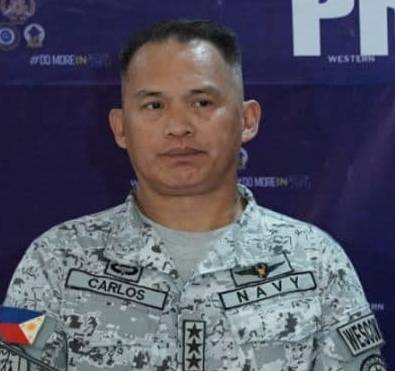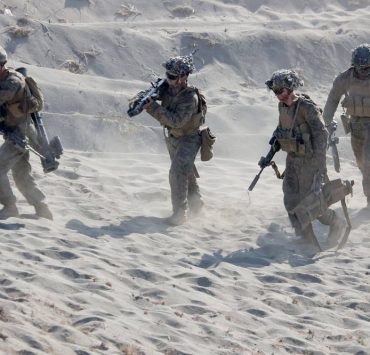Wescom gets new chief as Carlos goes on leave

The military command with jurisdiction over the West Philippine Sea welcomed a new chief on Tuesday, as the old commander, Vice Adm. Alberto Carlos, took a personal leave after his name was dragged into the so-called new model purportedly reached by Philippine and Chinese officials to manage tensions in Ayungin (Second Thomas) Shoal.
Rear Adm. Alfonso Torres took over as the head of the Western Command (Wescom) of the Armed Forces of the Philippines during a ceremony held at the Rizal Reef Hall in the unit’s headquarters in Puerto Princesa City early Tuesday.
Torres replaced the deputy commander for external security operations, Brig. Gen. Romulo Quemado II, who briefly served as acting commander in Carlos’ absence.
A document obtained by the Inquirer showed Quemado was designated on May 3 as acting commander of Wescom, whose authority extends over Palawan province and the Kalayaan Group of Islands.
The document said Torres’ appointment, which took effect on May 6, “shall be in effect only during the absence of the incumbent,” referring to Carlos.
Personal leave
Col. Francel Margareth Padilla, the AFP spokesperson, said Carlos’ leave of absence from the AFP had nothing to do with his alleged involvement in Beijing’s claims about a supposed agreement with Manila regarding the resupply missions to Ayungin Shoal.
Ayungin is an underwater feature that lies about 195 kilometers west of Palawan province, well within the Philippines’ 370-km exclusive economic zone. The Philippines stakes its claims to the area through the grounded warship BRP Sierra Madre, which is manned by a small number of troops who are rotated regularly.
Over the weekend, the Chinese Embassy in Manila claimed that the Philippines, through the Wescom and under the auspices of the Department of National Defense and the National Security Council, had agreed to a new model with China to manage the situation in Ayungin.
Both Defense Secretary Gilberto Teodoro Jr. and National Security Adviser Eduardo Año denied there was such a deal.
Padilla told reporters that Carlos’ leave was due to personal reasons, but added that it was only “coincidental” it happened after the Chinese Embassy made its claims.
It remains unclear how long Carlos will be away.
“Let’s respect his decision to file [for leave]. It’s an inherent right of every individual to go on leave, for whatever reasons,” Padilla said.
The Inquirer tried but failed to reach Carlos for comment. Other Wescom officials refused to comment on the matter.
Carlos assumed command of Wescom in January.
He reached the mandatory retirement age for military service in December but was covered by the fixed term of two years for major service commands, which would have extended his term until December.
President’s authority
Also on Tuesday, Commodore Roy Vincent Trinidad, the Navy spokesperson for the West Philippine Sea, told reporters that Beijing’s claims about the new Ayungin model were “all fabricated … to divert attention from their violations of international law and to cause divisiveness among us Filipinos.”
“I call them zombie stories—long dead but revived from the grave; best approach is to put these stories where they rightfully belong—in the grave, never to be heard again,” he said.
The Department of Foreign Affairs (DFA) also refuted another claim by China that the Marcos administration had informally agreed to its demand not to repair or reinforce the decrepit Sierra Madre.
“Only the President of the Republic of the Philippines can approve or authorize agreements entered into by the Philippine government on matters pertaining to the West Philippine Sea and South China Sea.”
“In this respect, the DFA can confirm that no Cabinet-level official of the Marcos administration has agreed to any Chinese proposal pertaining to the Ayungin Shoal,” said the DFA in a statement on Tuesday.
“As far as the Philippine government is concerned, no such document, record or deal exists, as purported by the Chinese Embassy,” the DFA added. —WITH A REPORT FROM DONA Z. PAZZIBUGAN INQ
















